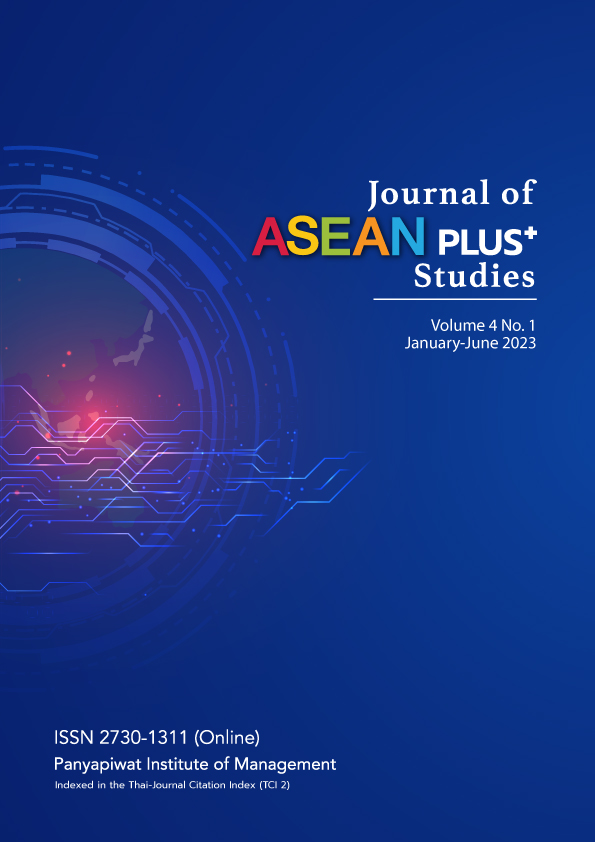Vol. 4 No. 1 (2023): January-June

Foreword
Two S-Curve Industries in Thailand attracted the research interests of scholars for this issue: “Health Tourism” and “Food for the Future”.
Wilaipan Jaiwilai et al. focuses on “The Promotion of Health Tourism in Thailand with International and Domestic Standards”. The standards they reviewed cover the WellHotel Standards of GHA; STAR Facility Accreditation of GBAC; the standards of WTTC; and the Thai Standards of SHA, followed by recommendations for health tourism-related establishments in Thailand to obtain certification.
China ASEAN Studies, PIM (CASPIM) examines “Food for the Future: Partners & Opportunities in China” in terms of hot spots, current trends, market structure, government regulation, and the ecosystem in the Chinese market of healthcare food. Three business models are proposed based on 8 case studies: outsourcing in China; export of Thai products to China and joint venture. They are related to the broader issue of strategic choices between cooperation parterres based on their identity and incentives.
Another food for the future is discussed by Pithoon Thanabordeekij and Phuwit Kitiya in “Factors Affecting Purchase Intentions of Plant-based Food
Products in Mueang Lampang”. The multiple linear regression reveals that environmental concerns, subjective norms, and perceived consumers' effectiveness factors affect the purchase intention of plant-based food products in this less-developed area of Thailand.
Other scholars in this issue extend their vision to ASEAN neighbors in Lao PDR and Cambodia, exploring traditional sectors like agriculture as well as new areas like e-commerce through social media and cryptocurrency.
Chairat Burana et al. look at “Clean Agriculture Development in Lao PDR”. Government statistics, key informant interviews and field observations reveal the advantage of “clean agriculture” or “organic agriculture (OA)” in particular in the country. It is recommended that standards of OA, GAP, SNA, and PEP should be promoted for a bigger domestic and international market.
Synuon Kry and Veerisa Chotiyaputa investigate “The Perception of Cambodian Users Towards Cryptocurrency Exchange Application”. The Unified Theory of Acceptance and Use of Technology 2 (UTAUT2) is applied in the analysis which revealed that habit, performance expectancy, and trust significantly influenced the adoption.
A similar TAM Model is also applied by Vorleak Chandara et al. in “Factors Influencing Behavioral Intention to Purchase Online On Facebook Platform: A Case Study in Phnom Penh City”, in which they found perceived usefulness, perceived ease of use, brand ambassador, and electronic word of mouth had positive and significant effects on behavioral intention.
Prof. Dr. Tang Zhimin
Editor-in-chief





